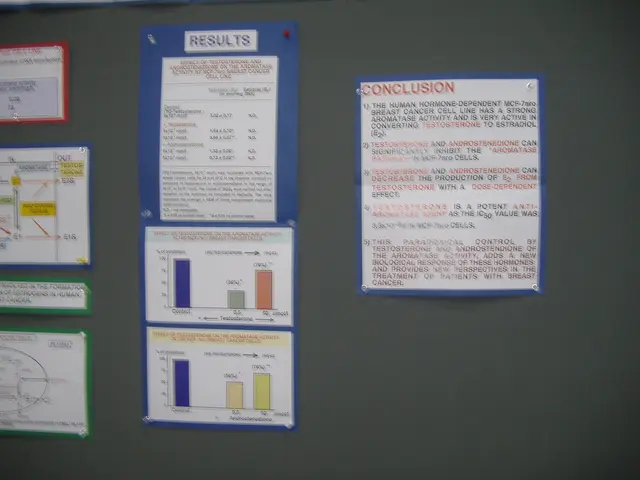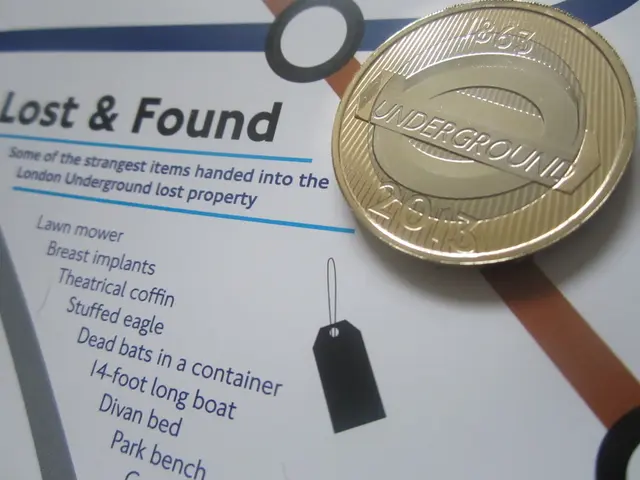Unmasking the Game of Business Tax Havens in North Rhine-Westphalia: CDU and Greens' Crusade
CDU and Greens push for enforcement against tax evasion in trade practices - Greens and CDU seek measures against corporate tax evasion in industries
Ready to throw a wrench in the works of business tax havens lurking in select North Rhine-Westphalia (NRW) municipalities? That's exactly what the ruling CDU and Greens coalition aims to do. They're planning a swift strike against these tax haven hotspots, calling on the new black-red federal government to beef up the minimum business tax rate.
Watch out, individual municipalities sneakily saving a pretty penny with their rock-bottom business tax rates! A motion is on the horizon for the NRW state parliament, set for next week. The Union and SPD, at the federal level, have already agreed to pump up the minimum rate from the current grim 200% to a slightly less grim 280%.
Business tax is a major financial lifeline for cities and municipalities. The average rate across NRW municipalities hovers around 450%, with a mind-blowing 700% maximum. But two municipalities, Monheim and neighboring Leverkusen, flaunt a far cry from those figures, gulping down business tax at a measly 250%.
No more sweetheart deals for tax fraudsters
Even the conservative CDU and Greens in NRW can't ignore the elephant in the room any longer. They agreed, upon taking office in 2022, to root out existing business tax havens hiding in plain sight in these municipalities. The plan is to enshrine regulations in the municipal finance law, making these tax havens unsavory choices for businesses.
The scholarly state's financial administration will lend a helping hand to municipalities in pinpointing the actual locations of businesses. The newly minted NRW state authority for combating financial crime has tax fraud with dummy addresses in business tax havens squarely in its crosshairs.
The alarming statistics paint a grim picture: despite the paltry rate, business tax havens in a select few NRW municipalities rake in heftier revenues than their neighbors. But hold up—that's not all. This cutthroat tax dumping technique is not only a slap in the face to neighboring municipalities, but it also encourages the rise of fake letterbox companies.
Curbing the vicious cycle of business tax wars
"Teaming up to undercut each other only breeds winners and losers", lamented Christof Sommer, managing director of the Association of Cities and Municipalities in NRW. The association has been rallying for a change, urging the state government to nip unfair business tax competition in the bud and advocate for a comprehensive federal-level package of measures.
The state's financial and justice authorities are being called upon to help municipalities squash illegal tax evasion. But undoubtedly, the solution goes deeper than that. An increase in the minimum rate is a promising step forward, but city and municipalities' woes run much deeper. Ultimately, they'll need more than just a tweak to their tax rates to pull themselves out of the red.
Insights:
- An increase in minimum business tax rates could lead to boosted municipal revenues, but might jeopardize local business competitiveness and economic growth, particularly in sectors like mechanical and plant engineering[4].
- The crusade against business tax havens is part of a broader global effort to combat tax havens and promote fair tax practices, with initiatives such as the OECD's Pillar Two aiming to establish a global minimum corporate tax rate[4].
- Though a minimum tax rate could diminish large corporations' capacity to exploit tax loopholes, it could put undue strain on smaller businesses and startups, making it tougher for them to compete with established companies[4].
- Confronting tax evasion and tax avoidance through regulatory measures like increased minimum tax rates could lead to more equitable tax systems and reduce instances of tax havens. This would be welcomed not just in NRW, but worldwide as part of the global push for tax justice.
Financial aid in the form of increased minimum business tax rates could potentially bolster municipal revenues in North Rhine-Westphalia (NRW), but it might also affect local business competitiveness and economic growth, particularly within sectors like industry, such as mechanical and plant engineering. The crusade against business tax havens in NRW, led by the CDU and Greens, is part of a broader global effort in finance, involving the industry, to combat tax havens and promote fair tax practices, such as the OECD's Pillar Two, which aims to establish a global minimum corporate tax rate.





